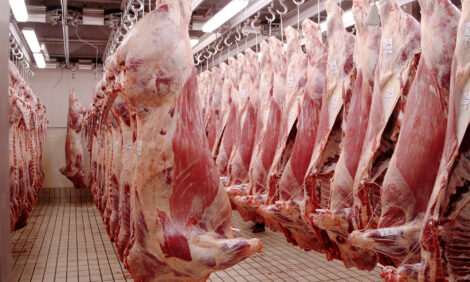



China's Leadership Scrambles to Head Off Discontent Over Risking Pork Prices
CHINA - Prices in China for pork, a staple of the Chinese diet, have increased by almost 10 per cent in recent weeks, largely as a result of an illness called "blue ear disease" that has decimated pig herds. Chinese leaders are afraid the price rises could lead to instability, and are scrambling to ensure that poorer families have enough food. Sam Beattie reports from Beijing. |
| A resident pays for pork at a market in Chengdu, southwestern China's Sichuan province |
Pork is China's favorite meat. In 2006, the average Chinese ate almost 20 kilograms of pork.
Now there is a shortage of pork, due to a disease in the south that led to the death of more than a million pigs, and an increase in grain prices. The result has been a rise of almost 10 percent in the average price of the meat.
The Chinese take their food very seriously, and the leaders fear that taking away a major part of the public's diet - at least among those who cannot afford the higher prices - could trigger instability.
Steven Tsang is an expert in Chinese studies and politics at St. Anthony's College, Oxford University. He says the government is concerned that a deprived population could get very angry.
"The Chinese Government is very concerned about issues of instability," he said. "There is almost ingrained fear of chaos amongst Chinese leaders, and Chinese society has a propensity to become more prone to rioting and other social instability in a time of crisis.
The leaders have reacted quickly to the rising prices. Government subsidies for pork producers have been announced to encourage hog rearing and boost the depleted numbers.
Source: VOAnews.com






